All content on this site is intended for healthcare professionals only. By acknowledging this message and accessing the information on this website you are confirming that you are a Healthcare Professional. If you are a patient or carer, please visit Know ALL.
The all Hub website uses a third-party service provided by Google that dynamically translates web content. Translations are machine generated, so may not be an exact or complete translation, and the all Hub cannot guarantee the accuracy of translated content. The all and its employees will not be liable for any direct, indirect, or consequential damages (even if foreseeable) resulting from use of the Google Translate feature. For further support with Google Translate, visit Google Translate Help.
The ALL Hub is an independent medical education platform, sponsored by Amgen, Autolus, Jazz Pharmaceuticals, and Pfizer and supported through an educational grant from the Hippocrate Conference Institute, an association of the Servier Group. Funders are allowed no direct influence on our content. The levels of sponsorship listed are reflective of the amount of funding given. View funders.
Now you can support HCPs in making informed decisions for their patients
Your contribution helps us continuously deliver expertly curated content to HCPs worldwide. You will also have the opportunity to make a content suggestion for consideration and receive updates on the impact contributions are making to our content.
Find out more
Create an account and access these new features:
Bookmark content to read later
Select your specific areas of interest
View ALL content recommended for you
Impact of asparaginase discontinuation on outcomes in ALL
Do you know... In a post hoc analysis of the CALGB 10403 phase II study, what was the impact of early discontinuation of PEG-asparaginase in patients with standard-risk ALL?
The addition of asparaginase to ALL regimens provides significant patient benefits. However, it is often discontinued because of toxicities, such as hypersensitivity reactions. Numerous studies have demonstrated that discontinuation of asparaginase is associated with inferior outcomes in patients with ALL. Thus, in patients who experience hypersensitivity reactions or silent inactivation, switching to an asparaginase with a distinct immunogenic profile is recommended to enable them to complete the full course of asparaginase treatment. Results from the Children’s Oncology Group study AALL1931 demonstrate that the asparaginase Erwinia chrysanthemi (recombinant)-rywn is a reliable option for patients with ALL switching from E. coli-based asparaginase to Erwinia-derived asparaginase treatment, consequently enabling patients to achieve the full clinical benefit of remaining on therapy.
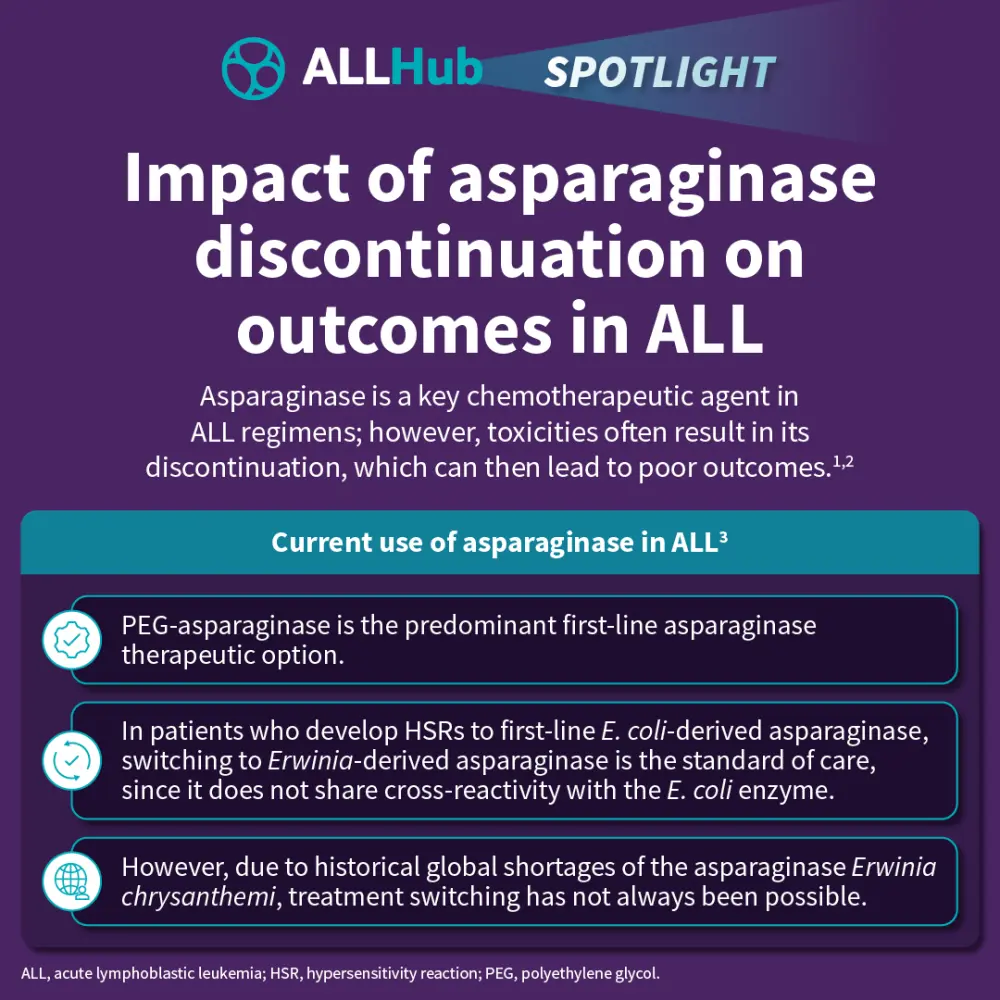
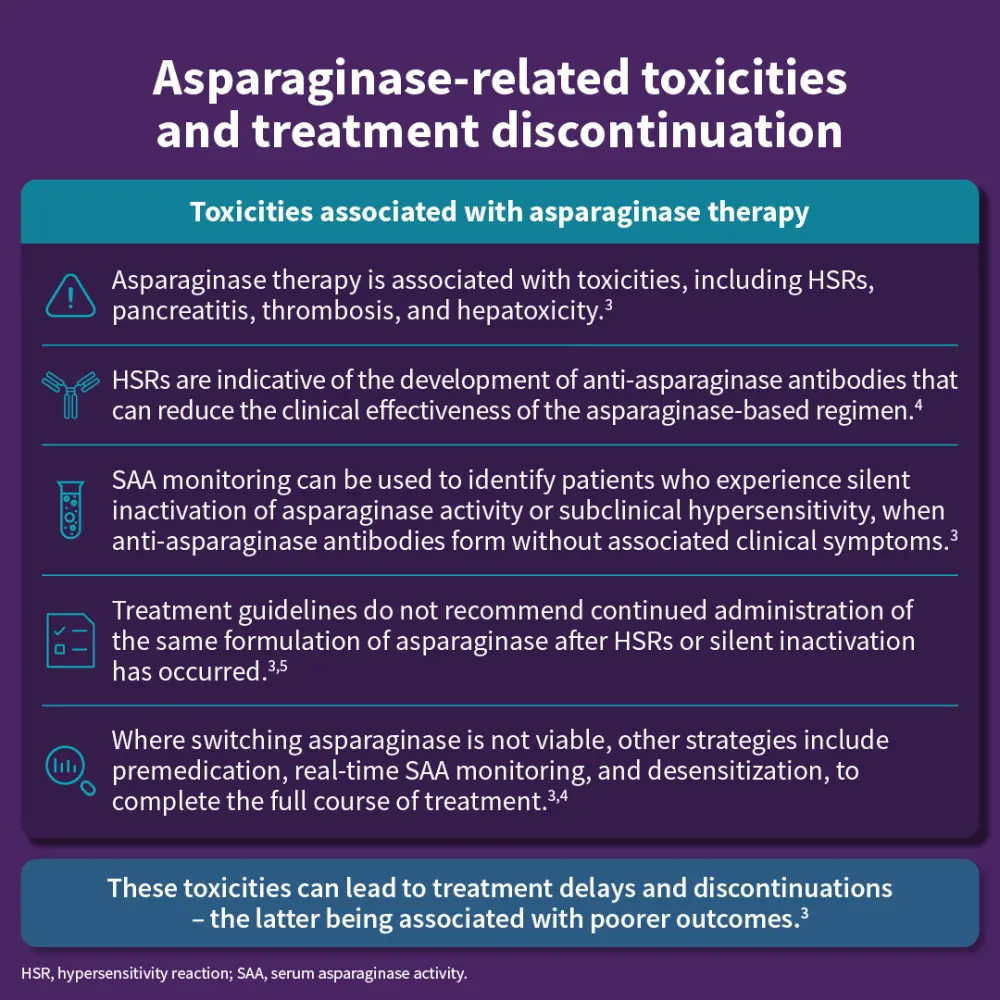
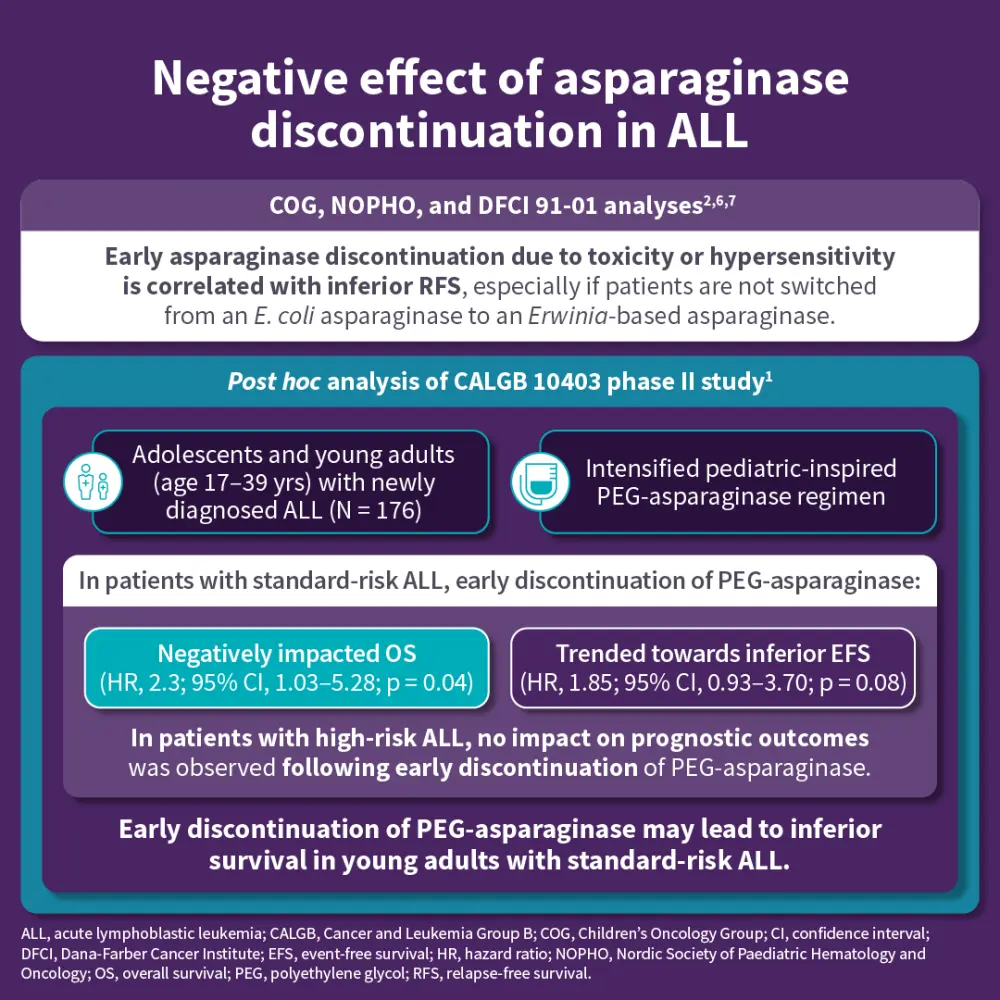
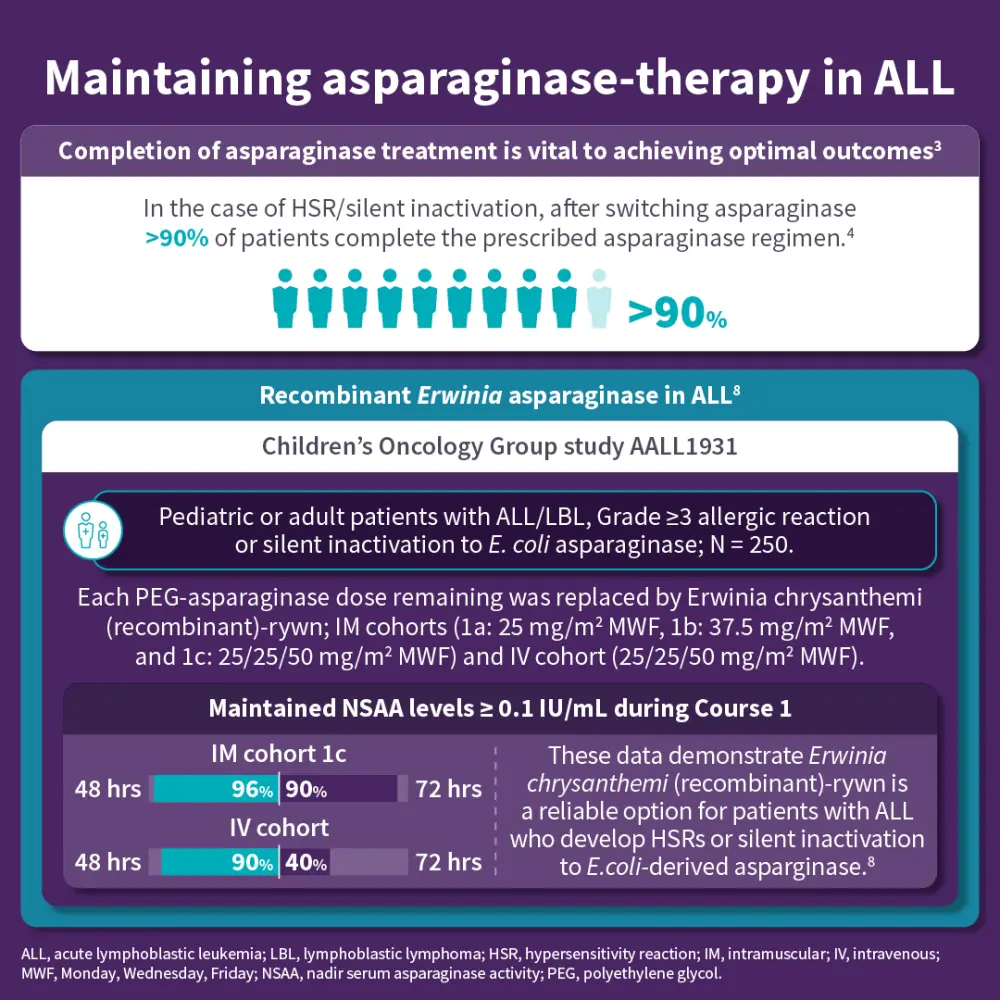
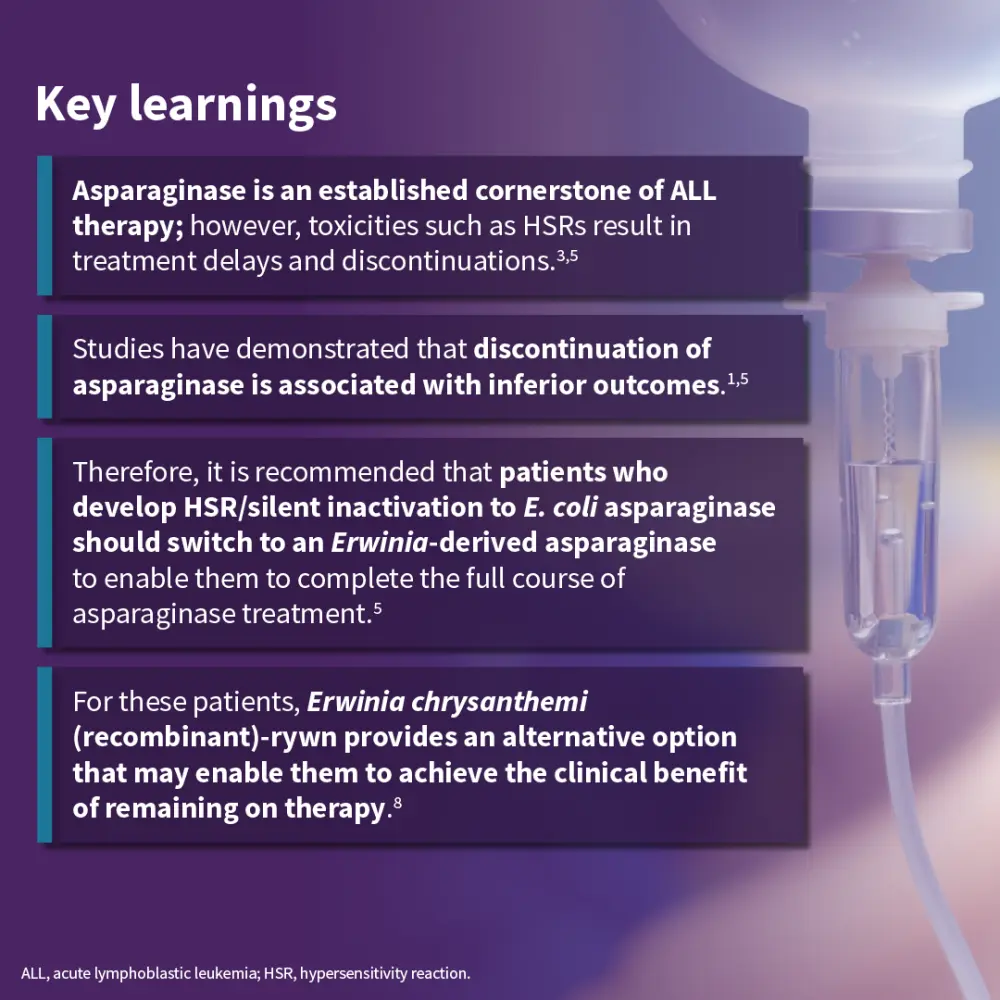
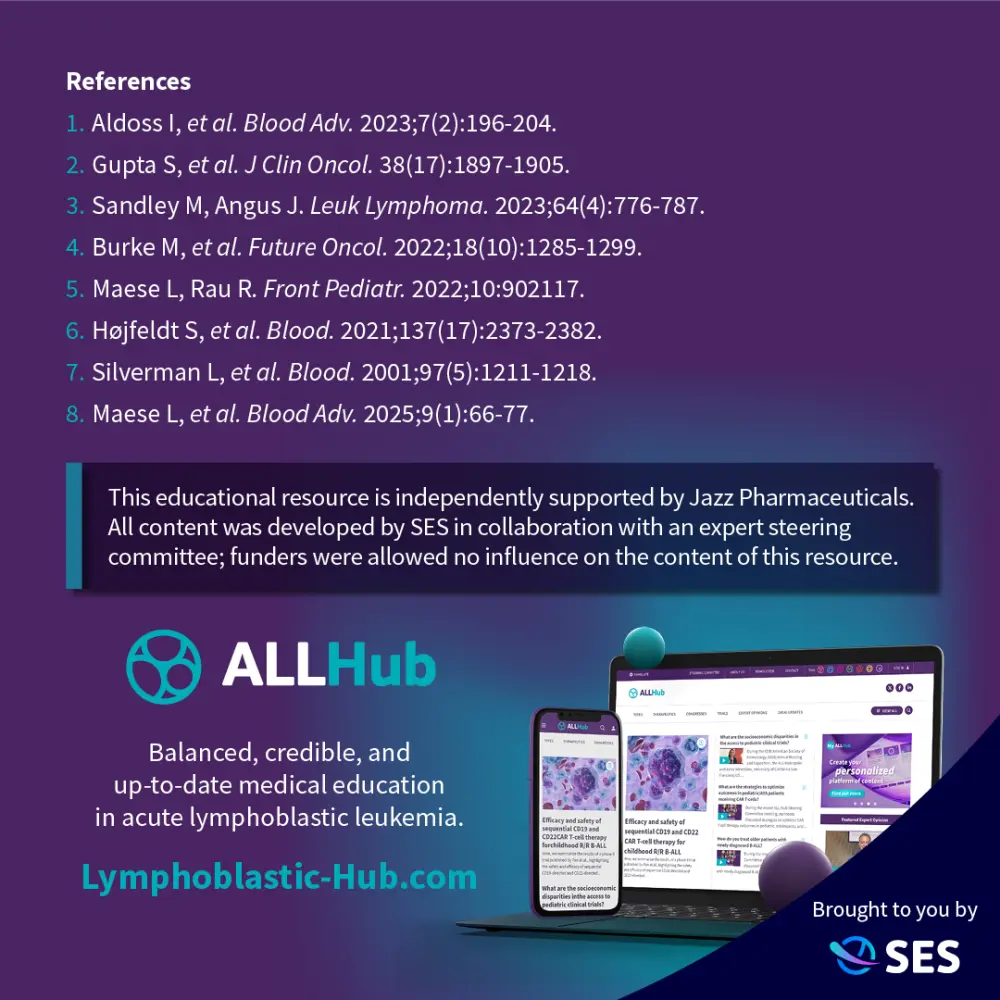
This educational resource is independently supported by Jazz Pharmaceuticals. All content was developed by SES in collaboration with an expert steering committee; funders were allowed no influence on the content of this resource.
Please indicate your level of agreement with the following statements:
The content was clear and easy to understand
The content addressed the learning objectives
The content was relevant to my practice
I will change my clinical practice as a result of this content




